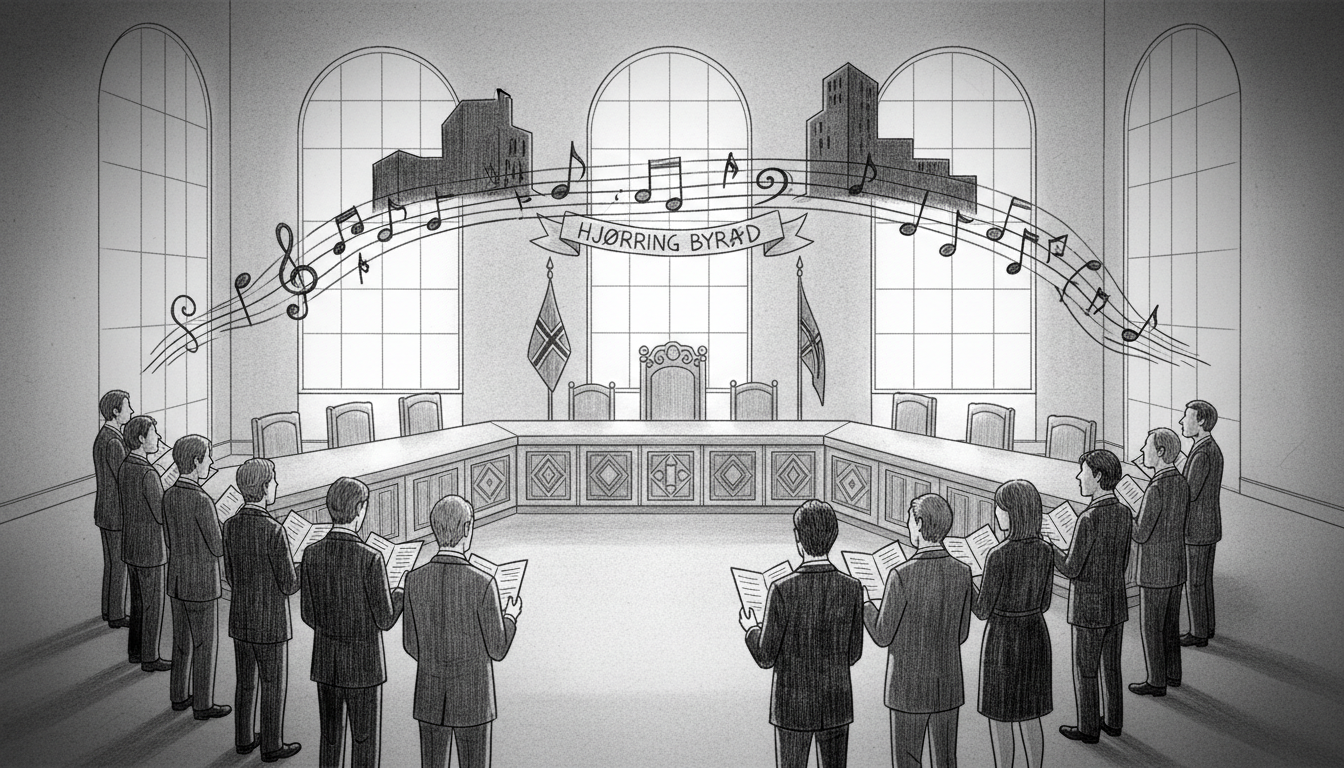Hjørring's city council meetings have become known for their heated exchanges. One politician recently accused the meeting chair of bias and incompetence. Another council member dismissed a colleague as being overly sensitive. These quotes reveal the tense atmosphere that has characterized local government proceedings in this North Jutland municipality.
Local community choirs now propose a musical solution to the political discord. Various singing groups across Hjørring have united behind an initiative to bring positive energy to every council meeting starting next year. The plan involves different choirs taking turns to open sessions with communal singing throughout the coming years.
The concept gained public support during a recent voter meeting where 400 citizens gathered at Frysehuset in Hjørring. Daniel Rugholm, a former Conservative council member who originated the idea, explained the approach. Adult, youth, and children's choirs will rotate responsibility for starting council meetings with song.
Mayor Søren Smalbro from the Liberal Party welcomes the musical intervention. He describes the choir initiative as genuinely good and expresses willingness to host the singing groups at future council meetings if he retains his position. His political opponent Erik Høgh-Sørensen from the local Vendelbo List also supports the measure. Høgh-Sørensen recalls from his regional council experience that starting meetings with singing created positive atmospheres before political debates.
Research supports using music to improve group dynamics according to music therapist Helle Nystrup Lund from Aalborg University Hospital. She explains that listening to music triggers oxytocin release, which promotes social bonding and cohesion. While choir singing cannot replace apologies for harsh language, it can establish foundations for more humane and pleasant interactions.
This Danish municipality's experiment reflects broader challenges in Nordic local governance where consensus traditions sometimes clash with increasingly polarized debates. The initiative represents an innovative approach to conflict resolution that leverages Denmark's strong choral traditions. Similar musical interventions have shown promise in other Scandinavian contexts where communal activities help bridge political divides.
The success of this program could influence how other Nordic municipalities address deteriorating political discourse. Many local governments face similar challenges maintaining constructive debate while managing genuine policy disagreements. Hjørring's choir solution offers a culturally appropriate approach that could be adapted across the region.
Mayor Smalbro acknowledges the unexpected nature of this development, noting that few observers of recent council meetings would have predicted he and his main opponent would be singing duets before Christmas. The initiative demonstrates how traditional Nordic cultural practices might help address contemporary political challenges.

